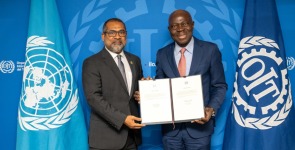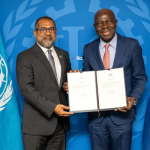
The Maldives-China Free Trade Agreement (FTA) offers detailed provisions aimed at fostering tourism collaboration, with a strong emphasis on creating joint ventures, easing regulatory hurdles, and opening access to the Chinese tourism market. These elements position the Maldives to capitalise on China’s vast outbound tourism industry while deepening economic ties between the two nations.
Joint Ventures in Travel Agencies and Tour Operations
A standout feature of the FTA is its provision allowing Maldivian travel agencies and tour operators to establish joint ventures with Chinese counterparts. These joint ventures, particularly when registered in designated zones like the Shanghai and Tianjin Free Trade Zones, can actively handle outbound travel for Chinese tourists. This includes the capability to organise trips to international destinations, including the Maldives.
For Maldivian stakeholders, this means a direct pathway into China’s immense tourism market, enabling them to better market their offerings, understand customer preferences, and cater to a growing base of Chinese luxury travellers.
Operational Flexibility for Travel Agencies
Another key element of the FTA is the facilitation of representative offices for foreign travel agencies in the Maldives. These offices can directly serve their clients without requiring intermediary approvals, streamlining operations and improving service quality. For Chinese companies, this provision ensures smoother facilitation of tours to the Maldives, while Maldivian firms benefit from a reciprocal arrangement for operations in China.
The ability to bypass previous restrictions on outbound travel services from China is a significant shift. Previously, such services were limited to state-approved agencies, but the FTA relaxes this requirement for Maldives-China joint ventures that meet the outlined criteria.
Eco-Tourism and Destination Marketing
The FTA’s broader focus on collaboration provides an opportunity for the Maldives and China to partner on sustainable tourism initiatives. This is particularly relevant in protected areas such as the South Ari Marine Protected Area (SAMPA), where joint ventures can promote eco-friendly travel while managing tourist influx. Such efforts align with global trends favouring sustainable tourism and resonate well with high-value Chinese travellers.
Regulatory Clarity and Market Access
The FTA also outlines a more transparent regulatory environment for businesses in the tourism sector. For instance, Chinese businesses seeking to operate in the Maldives must adhere to clear guidelines under the agreement, reducing bureaucratic delays. Similarly, Maldivian firms can now set up operations in China under mutually agreed terms, simplifying the business registration and operational process.
Why It Matters for the Maldives
Tourism is the lifeblood of the Maldivian economy, contributing significantly to GDP and employment. With China being one of the largest sources of inbound tourists to the Maldives, the FTA builds a stronger foundation for sustainable and profitable tourism ties.
The ability to partner on joint marketing campaigns, co-create unique experiences for high-spending travellers, and improve operational ease between the two countries is an unparalleled opportunity for Maldivian businesses.
The Maldives-China Free Trade Agreement is not just a policy document—it is a blueprint for deeper tourism collaboration. By fostering joint ventures, providing regulatory clarity, and focusing on sustainable growth, the FTA sets the stage for the Maldives and China to redefine their tourism partnership.
This targeted approach ensures that both nations reap the benefits of increased tourist traffic, better operational efficiency, and enhanced destination appeal. As these measures take effect, the Maldives and China are poised to lead a new era of tourism collaboration, one that blends economic prosperity with cultural exchange.












